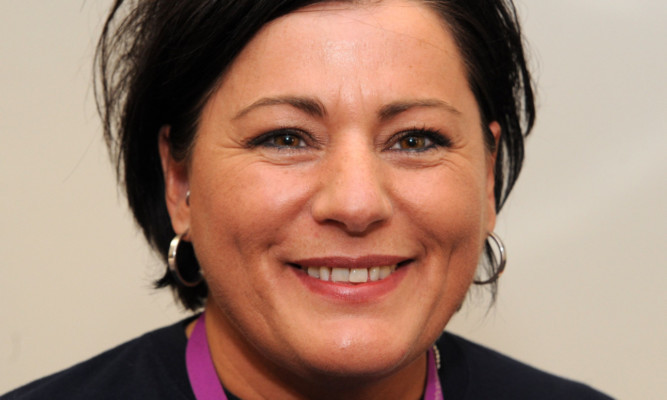More must be done to raise awareness of Tayside and Fife’s “hidden” drinkers amid fears that thousands of affluent people are regularly drinking to excess.
That’s the view of one local support group that has seen first-hand the toll middle-class alcoholism has had on lives across Courier country.
SMART Recovery holds meetings across Fife, attended by people who have serious alcohol-related health problems, including liver disease and cancer.
Trish Allan, support group leader, said a renewed focus is required to tackle excessive social or home-based drinking among the professional classes.
“There’s been a lot made of the whole ‘Buckfast culture’ in Scotland,” she said.
“I suppose there’s a lot of focus on that because of the impact it has on society immediately.
“It immediately has an impact on criminal justice, it immediately has an impact on social work because of children and families and questions are asked.
“But if you are in a professional high-functioning bracket, you are not creating those things.”
Trish warned middle-class drinkers can be unaware of the long-term effect on health, ultimately leading to a drain on the NHS.
“We’ve had people in the meetings who are lawyers, someone has their own IT business, so there are a lot of middle-class professionals who have changed their life by coming to our meetings.
“I think there’s a bit of elitism that it’s not a problem.
“You can talk to people and many will say: ‘It’s alright, I’ve had a bad day, I’ll have a gin and tonic’.
“A lot of people have been in that position without it being a problem, but if you start to think ‘I can’t wait to get home to get my bottle of wine, I need wine now’ then it’s something to think about. I don’t know whether it’s the social side of it, people being affluent.
“I don’t know why people do it and there are still drug issues in that particular bracket of people as well.”
Alcohol education charity Drinkaware has warned that around 3.4 million people across the UK could potentially be “sleepwalking” into health problems because of their drinking habits.
Unlike young adults who binge drink large amounts on one or two occasions a week, a new survey of drinking behaviours and attitudes has found that other demographics, including the middle classes, are more likely to spread their drinking across the week.
Elaine Hindal, chief executive of Drinkaware warned that professionals who take to the bottle every night after a hard day at work could potentially be sleepwalking into long term health problems as a result of their drinking patterns.
She said: “Regularly drinking above the lower risk limits can increase your tolerance to the short-term effects of alcohol but not to the strain it’s putting on your liver.
“As your tolerance increases, you’re more likely to drink more.”
